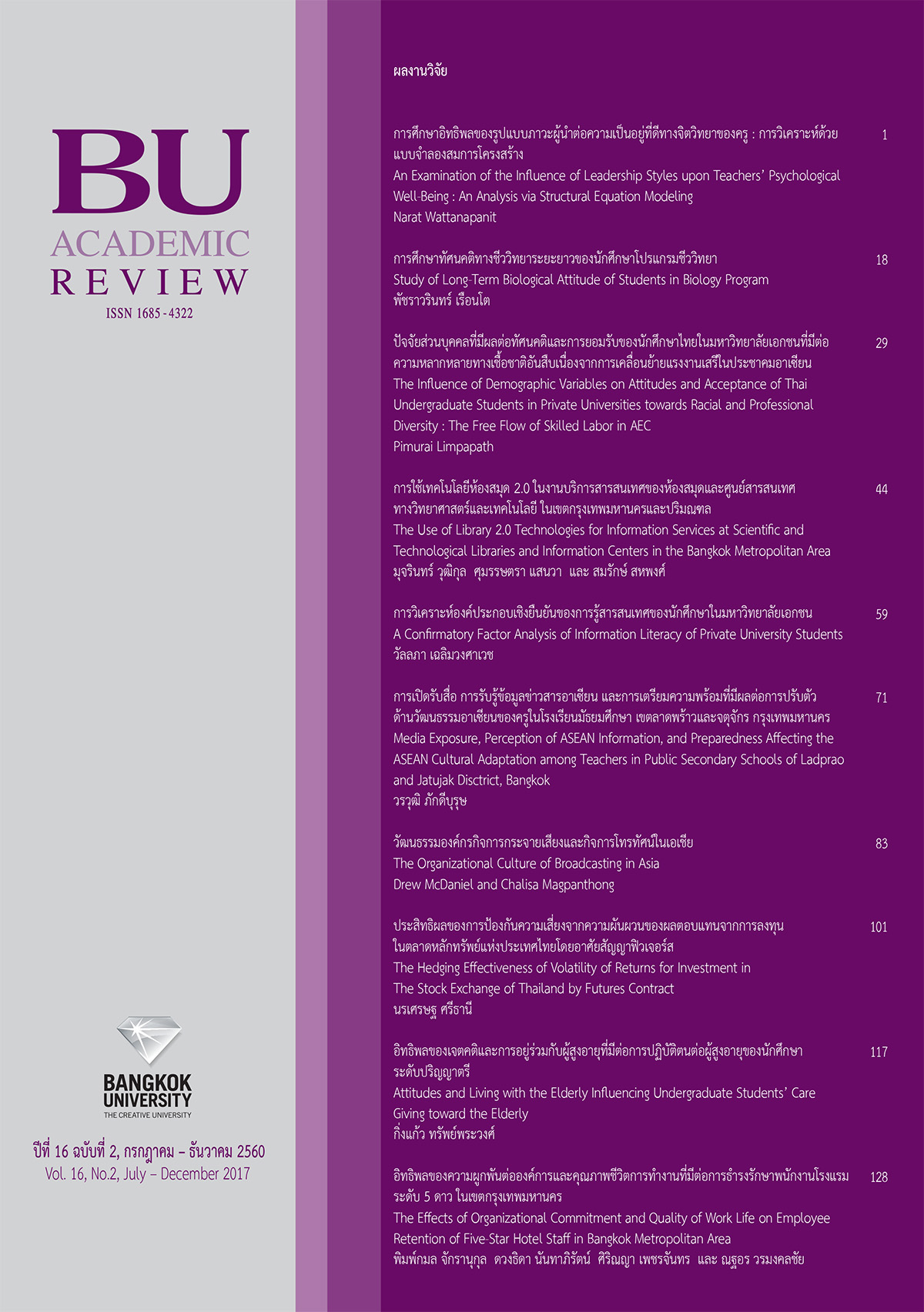The Organizational Culture of Broadcasting in Asia
Main Article Content
Abstract
This study examined the industry-wide organizational culture of broadcasting in 14 nations of Asia, analyzing values held by 233 senior radio and television staff members. Participants ranked a set of core values related to ideational organizational culture. Spearman correlation coefficients indicated that a few values were considered important across all nations, but other values varied sharply from country to country. A factor analysis identified three distinct groupings of value orientations: 1) socialist and former socialist nations, 2) Islamic and Roman Catholic nations, and 3) a single democratic monarchial Buddhist nation, this diversity indicating an absence of a common organizational culture in the region’s broadcasting field while suggesting the predominant role of politics and religions in shaping the region’s professional culture. Thus values held industry-wide appeared to interact with local cultures within nations producing sub-regional patterns.
การศึกษาครั้งนี้สำรวจวัฒนธรรมองค์กรการกระจายเสียงจำนวน 14 ประเทศในภูมิภาคเอเชีย โดยการวิเคราะห์ค่านิยมที่ผู้ปฏิบัติงานวิทยุกระจายเสียงและวิทยุโทรทัศน์ระดับอาวุโสให้ความสำคัญ ทั้งนี้ผู้เข้าร่วมการวิจัยจำนวน 233 คนได้จัดเรียงอันดับชุดค่านิยมหลักที่เกี่ยวข้องกับวัฒนธรรมองค์กรในอุดมคติการวิเคราะห์ค่าสัมประสิทธิ์สหสัมพันธ์แบบ สเปียร์แมนระบุว่า มีค่านิยมหลักบางประการที่ทุกประเทศจัดลำดับว่าสำคัญ และมีค่านิยมบางประการที่แต่ละประเทศให้ลำดับความสำคัญแตกต่างกันไป การวิเคราะห์องค์ประกอบบ่งชี้ว่า ชุดค่านิยมที่ได้รับการจัดเรียงลำดับเหล่านี้สามารถแบ่งเป็นสามกลุ่มหลัก ๆ คือ 1) กลุ่มประเทศสังคมนิยมและประเทศที่เคยใช้ระบบสังคมนิยม 2) กลุ่มประเทศนับถืออิสลามและโรมันแคทอลิกเป็นหลัก และ 3) กลุ่มประเทศประชาธิปไตยอันมีพระมหากษัตริย์ทรงเป็นประมุขและนับถือศาสนาพุทธ ซึ่งสะท้อนให้เห็นว่า แท้จริงแล้วไม่มีวัฒนธรรมองค์กรกิจการกระจายเสียงและกิจการโทรทัศน์หนึ่งเดียวในภูมิภาคเอเชีย และยังชี้ให้เห็นว่า การเมืองและศาสนาหลักมีบทบาทต่อการให้ความสำคัญในค่านิยม ดังนั้นอาจเป็นได้ว่า การที่ผู้ปฏิบัติงานให้ความสำคัญค่านิยมแตกต่างกันนั้น เป็นผลจากวัฒนธรรมท้องถิ่นนั้น ๆ อันนำไปสู่การสร้างรูปแบบค่านิยมในระดับอนุภูมิภาค
Article Details
The manuscript submitted for publication must be the original version, submitted only to this particular journal with no prior acceptance for publication elsewhere in other academic journals. The manuscript must also not violate the copyright issue by means of plagiarism.

